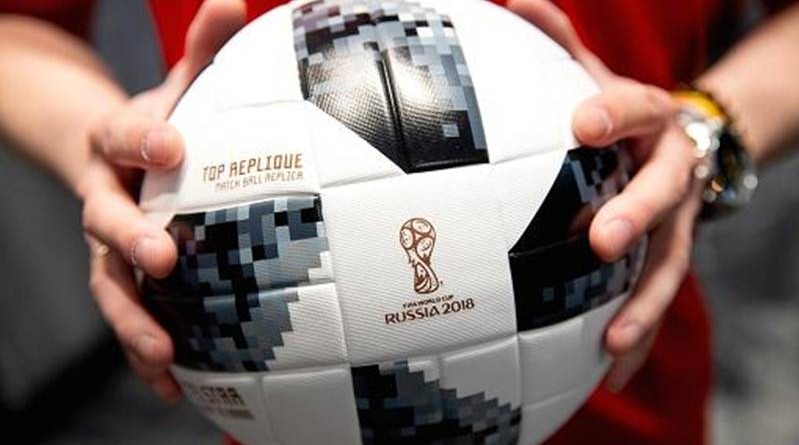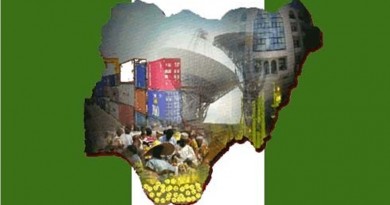The business of the World Cup – who makes money and how much?
The 21st FIFA World Cup kicked off Thursday in Moscow, with billions of people expected to watch soccer’s superstars play for national pride in the world’s most prestigious tournament.
The World Cup is the most lucrative and costliest soccer event because those who pay for the tournament are not necessarily those who see its profits. FIFA, soccer’s organizational leader around the world, rakes in billions of dollars in revenue every four years from the World Cup, while the nations that host the tournament foot a bill of $10 billion or more.
The 2018 tournament is being held in 11 Russian cities, beginning with 32 teams in a knockout tournament format. The winner is crowned July 15.
Construction and preparation for the tournament have handed an $11.8 billion bill to Russia, according to USA Today, with more than 70 percent coming from public funding.
Teams will win portions of the $400 million in total prize money up for grabs, according to FIFA, from $8 million per team for participating to $38 million for the winner.
Banks such as UBS and Goldman Sachs have run algorithms to predict the winner, with the former picking Germany and the latter choosing Brazil. The teams last faced in the semifinal of the 2014 World Cup, with Germany demolishing Brazil in a 7-1 victory.
What is FIFA?
The International Federation of Association Football is the governing body of soccer, as well as the organizer for many of the sport’s international tournaments. The association was created in the early 1900s to provide a single body to oversee soccer, as the sport’s popularity and wealth rose during the turn of the 20th century.
Based in Zurich, FIFA is designated legally as a nonprofit association, even though it brings in profits upwards of hundreds of millions of dollars each year.
FIFA continues to face heavy scrutiny as the 2018 World Cup begins, after investigations in 2015 brought forward allegations of corruption and bribery against many of the highest-ranking FIFA officials. The U.S. Department of Justice in 2015 indicted 41 FIFA officials, government leaders — including the then-current or past presidents of Costa Rica, El Salvador, Guatemala, Honduras, Nicaragua and Panama — and corporate executives with charges of racketeering, wire fraud and money laundering, for being involved “in a 24-year scheme to enrich themselves through the corruption of international soccer.” The FBI has continued to investigate FIFA for the past three years.
Part of the allegations against FIFA include awarding Russia with the 2018 World Cup and Qatar with the 2022 competition. The association completed an internal investigation in 2014, which it did not release despite declaring in a summary of the investigation that its findings exonerated FIFA. Those declarations were described by even the lead investigator hired by FIFA, U.S. federal prosecutor Michael Garcia, as “materially incomplete.”
Criticism extends beyond Russia’s shady bid for the World Cup to how it enriches its president, Vladimir Putin, and his friends. One example of corrupt leaders becoming tournament benefactors is Ramzan Kadyrov, the Chechen republic’s autocratic leader and an ally of Putin. The New York Times and nonprofit Human Rights Watch looked closely at how the Egyptian national soccer team and its global superstar player, Mohamed Salah, were being used by Kadyrov to boost the latter’s thuggish image.
The U.S. froze Kadyrov’s assets in December, listing him in sanctions regarding human rights abuses. His rule of Chechnya is one “where extrajudicial killings, torture, enforced disappearances are common,” Human Rights Watch said, and he exerts a “near-total repression of critics, journalists and L.G.B.T. people.”
When The New York Times asked FIFA about why a World Cup team would train in Chechnya, a FIFA representative told the newspaper in an email, that “through its activities, FIFA does not legitimize any regimes.”
How much it costs the host country?
The nation that hosts the World Cup has its team automatically qualified for the tournament but that status comes with a heavy price on the host nation’s economy.
In essence, FIFA requires bids to host the World Cup to include massive tax exemptions for the association. Germany offered FIFA an estimated $272 million in tax exemptions when it hosted the 2006 World Cup, with South Africa and Brazil following suit in 2010 and 2014, respectively. The agreements establish tax-free zones for the World Cup venues, with FIFA’s corporate partners being exempt from income and sales taxes.
Brazil spent an estimated $15 billion to build stadiums and transportation, among other infrastructure, for the 2014 World Cup. The most expensive of the stadiums, Mane Garrincha Stadium, cost $550 million and only served a handful of events in the months after the tournament — and it is now used a parking lot for buses.
Russia may not be spending quite the $51 billion it did for the 2014 Winter Olympics in Sochi but costs have continued to rise, most recently to nearly $12 billion.
State officials in Russia claim the World Cup will add $26 billion to $31 billion to the national economy. Arkady Dvorkovich, Russia’s former deputy prime minister, claimed that preparations have already added about $14 billion to the country’s GDP — the equivalent of 1 percentage point — as well as about 220,000 jobs. The officials did not specify how contributions to the economy from the World Cup were counted separately, a point of dispute among critics of the state.
This is who actually makes money
FIFA hauled in $4.8 billion in revenue from the 2014 World Cup, turning a $2.6 billion profit for the association. Broadcast revenue topped $2.43 billion, while sponsorships and ticket sales brought in $1.6 billion and $527 million, respectively.
The 2018 World Cup is expected to rake in about $6 billion in revenue for FIFA, up 25 percent from 2014. With as many as 3.2 billion people expected to watch the tournament, broadcast revenue is expected to rise to $3 billion.





